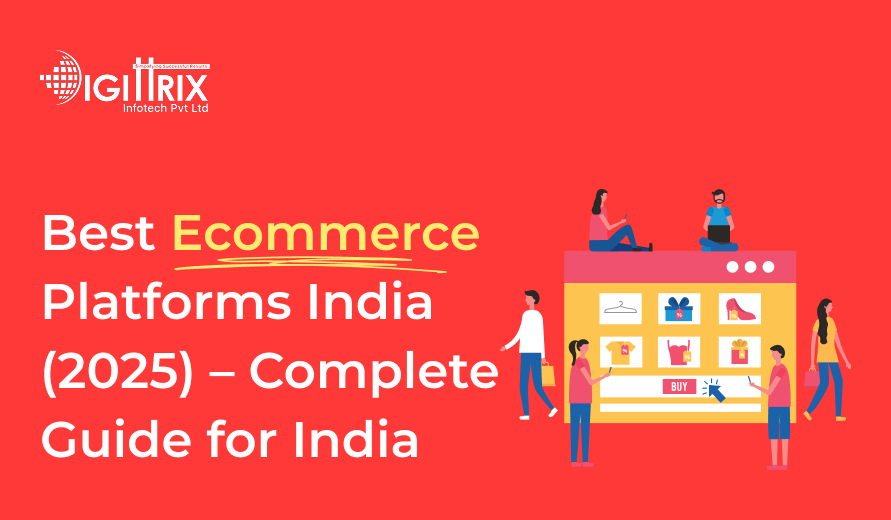Top Ecommerce Platforms for Indian Businesses in 2025 – A Complete Market Overview

Introduction
The growth of online retail in India has reshaped the way consumers purchase and how businesses operate. With new entrepreneurs entering the digital marketplace every month, choosing the right eCommerce platform has become crucial for long-term success. The Indian market now features a variety of solutions that suit different budgets, industries, and technical skill levels. Understanding which platform aligns best with your business goals helps create a smoother setup process, efficient management, and better customer experiences.
Platform Choices for Every Entrepreneur
In 2025, Indian entrepreneurs have multiple strong options to consider. Shopify, WooCommerce, Magento, BigCommerce, and Wix each offer specific advantages based on business scale and customization needs. Shopify’s ready-made ecosystem supports quick store launches, while WooCommerce provides flexibility for those already using WordPress. For enterprises, Magento’s scalability remains unmatched. Domestic players like Dukaan and Zoho Commerce have also gained traction with features customized for Indian payment systems and local logistics. Businesses that plan ahead for integrations and long-term performance often seek Ecommerce app development services to connect online stores with delivery, CRM, and accounting tools.
Before You Start: Things to Keep in Mind
Before choosing a platform, businesses should evaluate the total cost of ownership, including hosting, plugins, transaction fees, and maintenance. It’s also important to assess the learning curve—some systems are simple drag-and-drop tools, while others require more advanced management. The decision ultimately depends on the owner’s comfort with technology, the size of the catalog, and future scalability plans.
Why Shopify Dominates the Indian Startup Scene
Shopify continues to be a top choice among Indian startups and small business owners because it offers speed, reliability, and minimal technical overhead. Its vast library of themes allows users to create visually appealing stores without coding. It also connects with leading Indian gateways like Razorpay and PayU for secure transactions. Many businesses also prefer to hire Shopify developers to tailor templates, automate workflows, or add third-party tools that improve conversions. This combination of simplicity and flexibility makes Shopify one of the easiest platforms to grow with.
Essential Features Every Platform Should Offer
When comparing eCommerce solutions, certain features consistently influence performance and customer satisfaction. These include:
- Secure and reliable payment integrations
- Responsive design for all devices
- Built-in SEO and analytics tools
- Inventory and order tracking dashboards
- Integration with logistics and fulfillment partners
- Multi-language and multi-currency options
- Strong data protection and compliance
- Support for third-party plugins and APIs
Including these features along with mobile app development ensures that customers have a unified and user-friendly experience across devices, boosting overall retention and revenue potential.
Final Words
The Indian eCommerce environment in 2025 is more diverse and competitive than ever. Entrepreneurs who choose their platforms based on functionality, budget, and business vision will find it easier to thrive. Whether opting for a quick-start platform like Shopify or a customizable one like WooCommerce or Magento, focusing on flexibility and scalability ensures lasting success. With thoughtful planning and smart use of digital tools, Indian sellers can turn their online stores into sustainable, high-performing businesses in the years ahead.
- Art
- Causes
- Crafts
- Dance
- Drinks
- Film
- Fitness
- Food
- Juegos
- Gardening
- Health
- Home
- Literature
- Music
- Networking
- Other
- Party
- Religion
- Shopping
- Sports
- Theater
- Wellness



